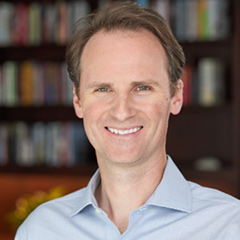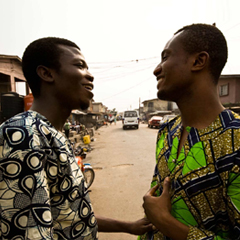MacArthur President John Palfrey writes about our time-limited approach to Big Bets and establishing new work, rooted in our values and being consistently flexible.
Beginning in 2015, MacArthur established a roadmap for grantmaking via three new modes: Big Bets, aimed at audacious solutions to era-defining challenges; Enduring Commitments, designed to support areas intrinsic to the Foundation’s identity; and Field Support, focused on entrenching social considerations in broad fields essential to our philanthropy. Along with these three modes, we established that each of our grantmaking strategies would undergo periodic review. We determined that Big Bets would be time-limited in nature, while our Enduring Commitments and Field Support programs would be responsive to emerging circumstances. This approach allows us to respond in real time to changing conditions in the world, improve our understanding of effective interventions, and incorporate updated grantmaking tools.
Seven years on, we continue to affirm this program architecture and approach. It enables us, as a global foundation, to continue our overarching mission of fostering a world that is more just, verdant, and peaceful. At the same time, significant change is around the corner, as each Big Bet approaches its planned conclusion.
Over the next four years, we will bring to a close our strategies in Nuclear Challenges (2023), On Nigeria (2024), Criminal Justice (2025), and Climate Solutions (2026). These planned endpoints by no means reflect lack of appreciation for the work we have supported or for the progress grantees have made towards transformative change. To the contrary, we celebrate and acknowledge the places where we and our partners have met and exceeded our goals, and we value our learning where we have not.
This moment differs significantly from previous times when the Foundation exited longstanding programs. Each Big Bet was time-limited from its outset. This has enabled us to work with the end in mind—to identify where we need to shore up accomplishments and plan for the sustainability of both the organizations we have partnered with and the initiatives they have undertaken. Our learning and evaluation activities will continue through the conclusion of all grant-supported work, allowing us to appreciate the full scope of the efforts undertaken. We believe that taking time-limited approaches to critical challenges can best enable us to be flexible in an ever-changing external environment, to live our values, and to rapidly respond to knowledge as it emerges.
While we exit our current strategies, crises such as climate change, nuclear risk, government corruption, and overincarceration persist. We expect to develop new work or new strategies to respond to these or other persistent challenges—even as our specific strategies wind down—guided by our just, verdant, and peaceful mission. The creation and implementation of new work or new strategies will likely require acquiring internal expertise and identifying new external organizations to support, in some combination with our existing relationships. We will not resuscitate former strategies or programs that have ended, but we will leverage our assets and lessons learned.
Over the next five years, we aim to be consistently flexible in the way that we work. We will look for new and more just ways of working and encourage more cross-program collaboration as we strive for the impact we seek. We also bring confident humility to our approach. Though we have high aspirations, we remain humble in the face of our shortcomings and we remain committed to learning from the intended and unintended outcomes of our grantmaking. We are grateful to our partners who contribute to continually improving our ways of working and who share our vision for the future.







